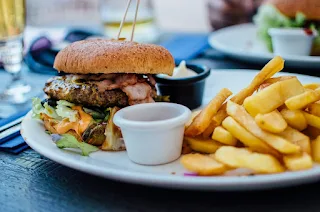Why Chronic Stress Drives Craving for High-Calorie 'Comfort Food' Understood
Chronic stress has long been associated with unhealthy eating habits and weight gain, but the underlying mechanisms behind this connection have remained unclear. However, a groundbreaking study has shed light on why we tend to crave high-calorie "comfort food" when under chronic stress. The research reveals that chronic stress can override the brain's natural response to satiation, leading to increased food consumption and a preference for rewarding, high-calorie options.
The study, conducted by researchers at the Garvan Institute of Medical Research in Sydney, Australia, focused on the brain's lateral habenula, a region known for dampening reward signals and regulating eating behavior. Normally, when we are satiated or full, the lateral habenula activates, signaling the brain to stop eating. However, chronic stress disrupts this natural response, allowing reward signals to remain active and promoting continued eating for pleasure.
"We found that stress can override a natural brain response that diminishes the pleasure gained from eating - meaning the brain is continuously rewarded to eat," explained Herbert Herzog, the senior author of the study.
Furthermore, the research demonstrated that chronic stress promotes weight gain and obesity. Stressed mice on a high-fat diet gained twice as much weight as non-stressed mice on the same diet. The key factor contributing to this weight gain was the molecule NPY, which is produced in response to stress. By blocking the activation of NPY in the lateral habenula of stressed mice, the researchers observed a decrease in comfort food consumption and subsequent weight gain.
Interestingly, the study also found that chronic stress drives a craving for sweet, palatable food. Stressed mice on a high-fat diet consumed three times more artificially sweetened water than those on a regular diet. This suggests that stress not only influences caloric intake but also contributes to a preference for sugary foods.
The implications of this research are significant. It highlights the importance of maintaining a healthy diet during stressful times and avoiding high-calorie, low-nutrient comfort foods. "In stressful situations, it's easy to use a lot of energy, and the feeling of reward can calm you down - this is when a boost of energy through food is useful. But when experienced over long periods of time, stress appears to change the equation, driving eating that is bad for the body long term," emphasized Herzog.
The findings underscore the need to manage stress levels effectively and adopt a balanced, nutritious diet, particularly in times of chronic stress. By doing so, individuals can support their overall well-being and maintain a healthy energy metabolism. So, if you find yourself dealing with long-term stress, remember to prioritize self-care, choose healthy food options, and resist the temptation to indulge in junk food.
